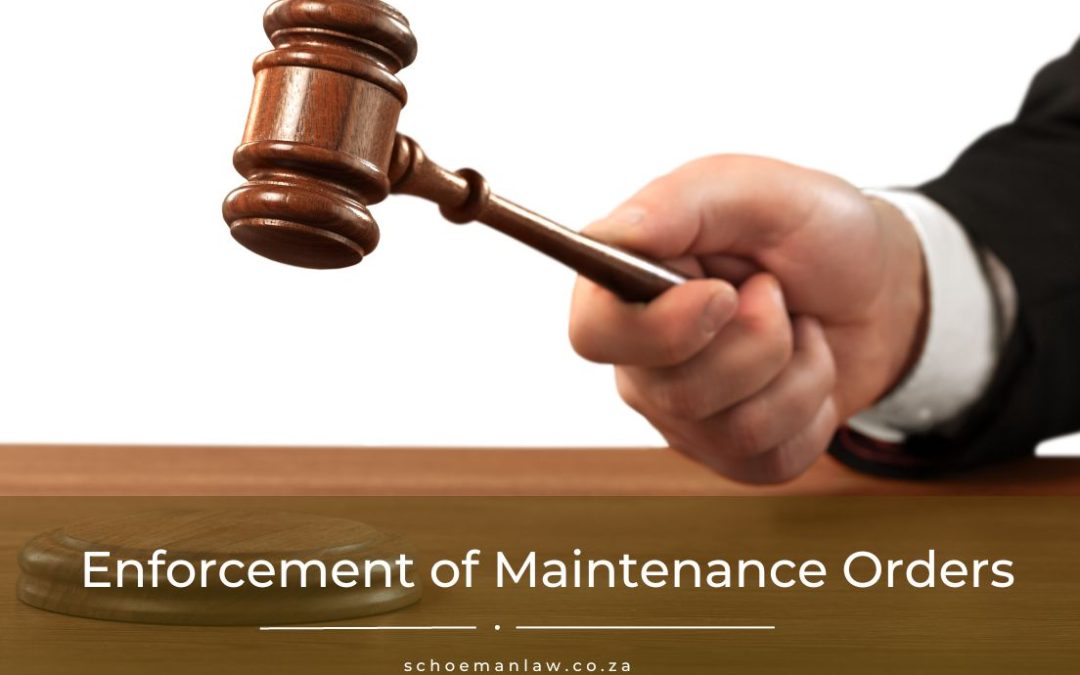Introduction
So, the court has ordered that a parent must pay child support, but the Respondent is still refusing and/or failing to do so. Raising children is expensive, and you desperately need the maintenance money to support your child/ren. What can you
do now?
Enforcement of maintenance orders is dealt with by sections 26 - 30 of the Maintenance Act 99 of 1998 (hereinafter “the act”), and provides for the following remedies:
Execution against property:
One can apply to the Maintenance Court to obtain a Warrant of Execution against the movable property of the person who is in arrears with Maintenance. Once a warrant of execution has been issued, it must be taken to the sheriff of the court to be executed. If it is found that a person’s movable property is insufficient to satisfy the amounts owed, the person in whose favour an order was granted can return to the Maintenance Court and apply for a warrant of execution to be issued against the immovable property.
Emolument attachment:
In terms of Section 28 of the Maintenance Act the person in whose favour the Maintenance order was granted can apply to the Maintenance Court to have the emoluments of the person attached. An emolument is any salary, fee, profit and/or
income received as a result of employment and the court is empowered to attach any emolument at present or in future that is owing or accruing to the person against whom the maintenance order was granted.
Attachment of debt:
Section 30 of the Maintenance Act states that one can apply to the Maintenance Court to attach debt owed to the defaulting party. The debt must be owed by a third party or be owed in the future or accruing. The Court can grant an Order that such debt is attached to pay the arrear maintenance.
Criminal Charges:
Where a person has not complied with the terms of a maintenance order and they had the means to do so, a person in whose favour the maintenance order was been granted can approach the maintenance court and submit a criminal complaint. If such a complaint is submitted to the maintenance court, a state prosecutor will issue a criminal summons and pursue criminal charges against a defaulting party. If convicted, the defaulting party risks imprisonment, a fine, or both imprisonment and a fine!
Conclusion:
The remedies under the Maintenance Act should be applied fully and diligently as the failure to pay maintenance harms the interests of the child, which interests include, inter alia, that the child is provided with the necessary support or
maintenance. In the matter of Fletcher v Fletcher 1948 (1) SA 130 (A), the court made it clear that the best interest standard must be the main consideration in matters involving children.
So, if you find yourself in a position where your co-parent is defaulting on maintenance payments, why not contact an attorney at Schoeman Law to assist in
your legal needs?


Recent Comments